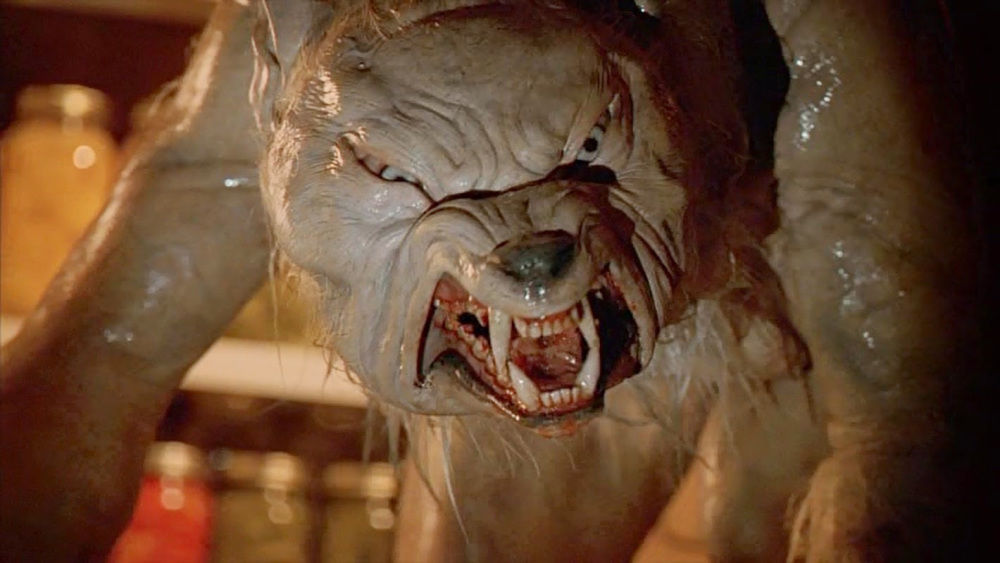Pynchon has a thing about werewolves and fascism,
If the US did go fascist, how would it happen? The question appears often in coded terms of “werewolf” transformations that merge language about insanity’s spasms—“flipping” in its colloquial sense—with a deep reading of fascistic potential. McClintic Sphere in V. muses that human brains, like computer circuits, “could go flip and flop.” In World War II, “the world flipped”; then “come ’45, [. . .] they flopped,” and the Cold War ensued: “Everything got cool” (293). Charismatic love might result for those who now “flip back,” Sphere suggests, “But you take a whole bunch of people flip at the same time and you’ve got a war” again—a warning of, in the words’ evocation of the switch detonating a nuclear device, a new wave of totalitarian warfare led by American bombs (293). On its second page V. sounds an overture to a career full of such “abruptness,” of “normal night’s dream turning to nightmare. Dog into wolf, light into twilight” (10). The book will later connect the wolf image to both the Germans’ dress rehearsal for the Holocaust in Südwestafrika (where Mondaugen hears the incessant call of the strand wolf) and the betrayals of the 1956 New York cast (who are, in the August heat, on the verge of “Werewolf season”) (300). In its central conceit Gravity’s Rainbow expands on Sphere’s speculations about the innocent American lover gone mad: conditioning by Nazi Laszlo Jamf may have flipped the one and zero of stimulus and response in Slothrop’s brain, and—“a monster,” says Pointsman—he unwittingly brings Nazi rockets in the wake of his sexual love (147). And Gravity’s Rainbow follows in V.’s werewolf vein too by reserving the image for two enforcers of totalitarian regimes: Tchitcherine and Blicero. The latter, we hear, grows on the Lüneburg Heath, “in his final madness,” “into another animal . . . a werewolf . . . but with no humanity left in his eyes” (494).
Why have critics of Vineland failed to agree on the nature and scope of the fascist menace looming over the novel? Brad Leithauser’s review typified the book’s negative early reception in claiming that Vineland lacked something “overarchingly malignant” for its characters to combat. Federal...

pynchonnotes.openlibhums.org




